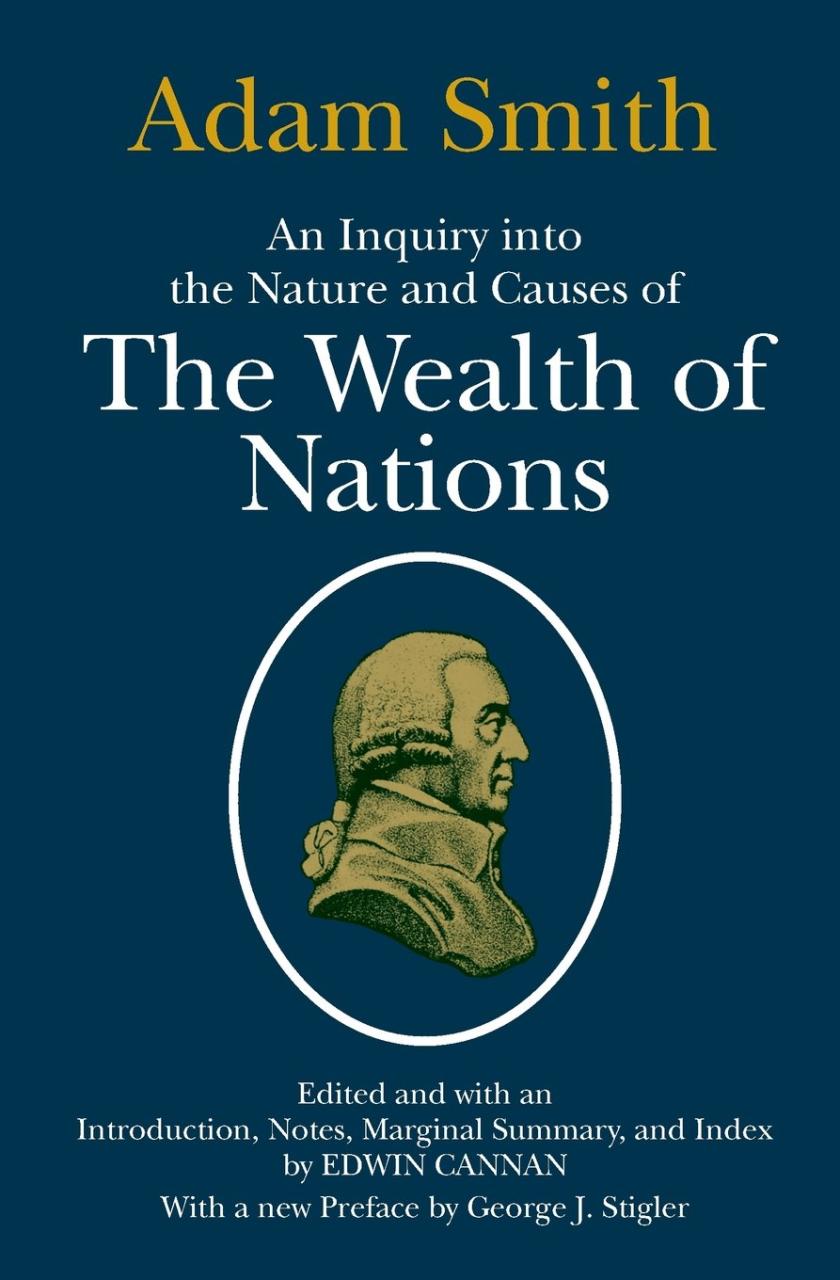
An Inquiry into the Nature and Causes of the Wealth of Nations Summary of Adam Smith's Book

An Inquiry into the Nature and Causes of the Wealth of Nations - Book Summary
An Inquiry into the Nature and Causes of the Wealth of Nations by Adam Smith is a groundbreaking work that laid the foundation for modern economic thought. First published on March 9, 1776, this book has remained a classic in the genres of Economics, Nonfiction, and Philosophy. With its clear and incisive prose, Smith delves into the principles behind modern capitalism, making it a must-read for anyone seeking to understand contemporary society.
In this comprehensive summary, we will explore the characters, provide a detailed summary, and offer an in-depth analysis of this seminal work. With Robert Reich's Introduction clarifying Smith's analyses and illuminating his relevance to today's world, readers will gain insights into issues that are just as relevant now as they were in the late eighteenth century.
Characters
The central character in An Inquiry into the Nature and Causes of the Wealth of Nations is Adam Smith himself. As the author, Smith employs his keen intellect and meticulous research to present his ideas on economics, trade, government, and ethics. Through his writing, Smith emerges as a visionary thinker whose ideas continue to shape our understanding of the modern economy.
Detailed Summary
An Inquiry into the Nature and Causes of the Wealth of Nations is divided into five books, each addressing different aspects of economic theory and policy. In Book I, Smith discusses the division of labor, arguing that specialization leads to increased productivity and economic growth. He introduces the concept of the invisible hand, stating that individuals pursuing their self-interest can inadvertently benefit society as a whole.
In Book II, Smith explores the origins of capital accumulation and the role of markets in allocating resources efficiently. He criticizes mercantilist policies that restrict trade and advocates for free markets as the most effective mechanism for fostering economic prosperity.
Book III delves into the principles of taxation and public finance, emphasizing the importance of a fair and efficient tax system. Smith argues against excessive government intervention in the economy and calls for a minimal state that allows for market forces to operate freely.
Book IV focuses on the role of government in regulating economic activity and providing public goods. Smith addresses issues such as public education, infrastructure, and the administration of justice, asserting that government intervention should be limited to areas where the market fails to function effectively.
In Book V, Smith examines international trade and the benefits of specialization and exchange between nations. He advocates for free trade and criticizes protectionist policies that hinder economic growth. Smith's views on trade continue to influence discussions on globalization and international economic relations to this day.
Extensive Analysis
Adam Smith's An Inquiry into the Nature and Causes of the Wealth of Nations remains a seminal work in economic theory. Smith's insights into the division of labor, the role of markets, and the benefits of free trade have had a lasting impact on the field of economics. His concept of the invisible hand, which suggests that individuals pursuing their self-interest can inadvertently promote the greater good, has become a foundational principle in understanding market dynamics.
Smith's critique of mercantilist policies and his advocacy for free markets have shaped economic policy debates for centuries. His emphasis on the importance of competition, innovation, and economic freedom continues to influence policymakers and economists worldwide. Smith's ideas on taxation, government intervention, and international trade have informed discussions on public policy and economic development across the globe.
To conclude, An Inquiry into the Nature and Causes of the Wealth of Nations is a timeless masterpiece that offers valuable insights into the principles of economic theory and the workings of capitalism. Adam Smith's rigorous analysis and clear writing make this book essential reading for anyone interested in economics, politics, or philosophy.
If you found this summary intriguing, I encourage you to purchase the complete book to explore Smith's ideas in greater depth. Alternatively, you may consider listening to the audiobook for a convenient way to engage with this classic work.
Remember, the wisdom and knowledge contained in An Inquiry into the Nature and Causes of the Wealth of Nations are as relevant today as they were over two centuries ago. Happy reading!
9780226763743 (ISBN10: 0226763749)






Related Books